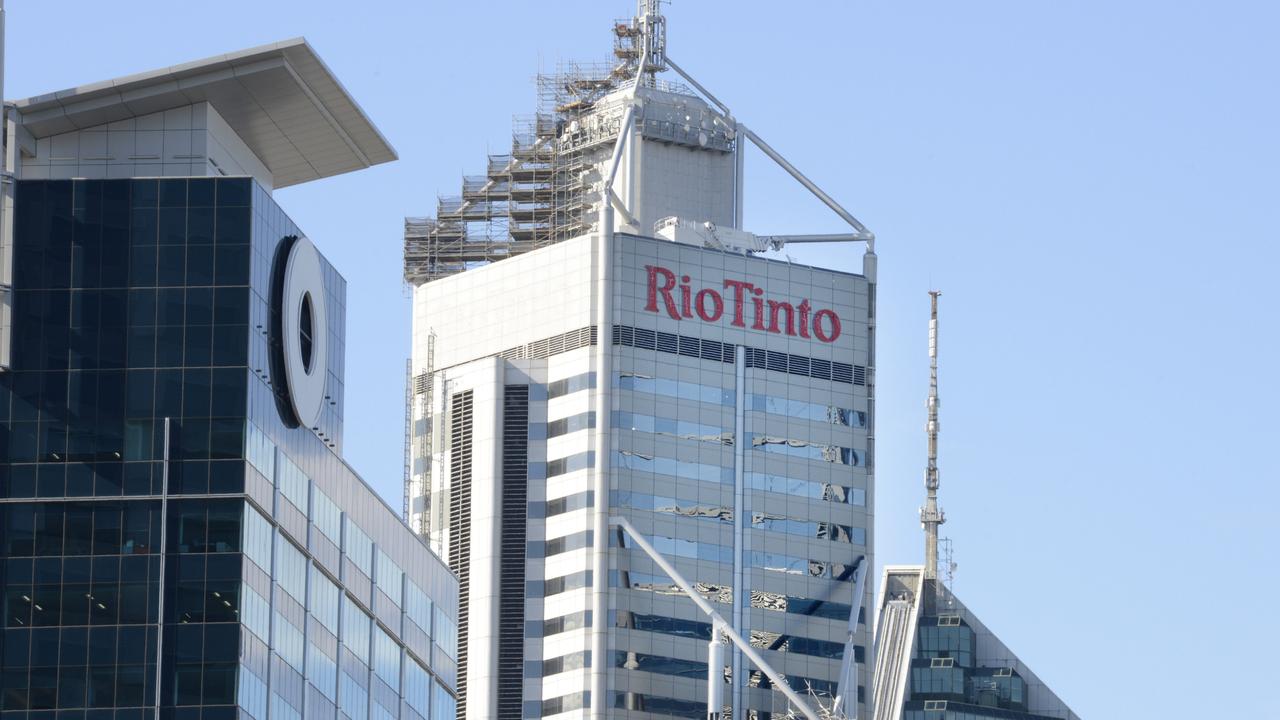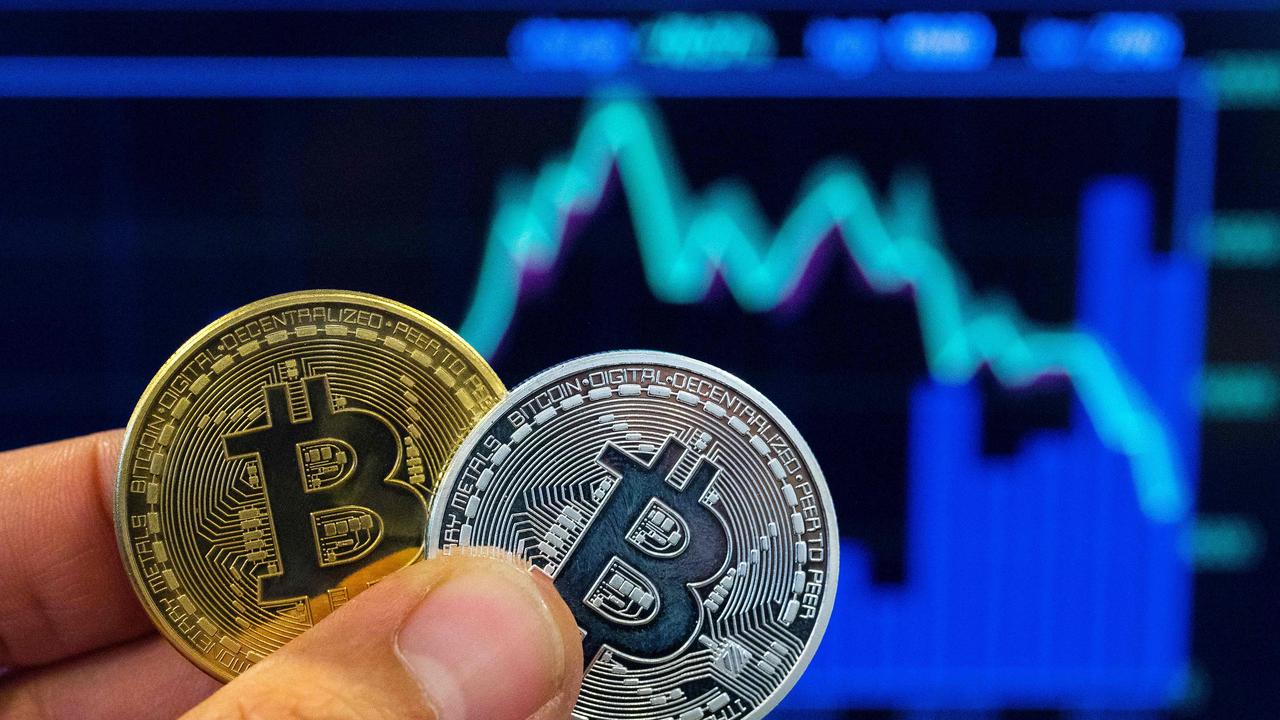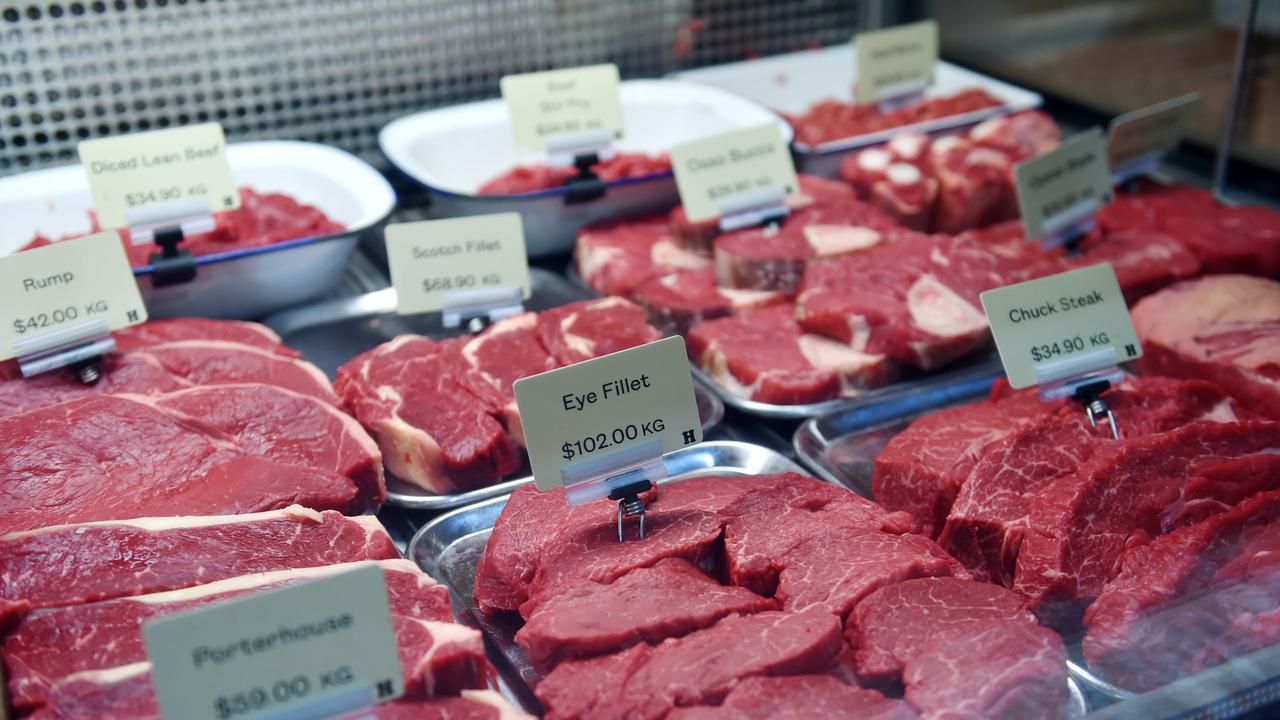Evergrande chairman injects own wealth into ailing firm as payment deadlines loom and deals collapse
The real estate behemoth will face its day of reckoning tomorrow, with its billionaire chairman going to extreme lengths to keep it afloat.

The clock is ticking for China Evergrande Group, with the ailing real estate juggernaut now facing a do or die weekend as it stares down the barrel of a total collapse.
The world’s most indebted property company – which has managed to rack up staggering debts worth $A408 billion – has until this Saturday to pay up on an $US83.5 million ($A111. 8 million) bond coupon.
While Evergrande has missed payment deadlines before, this one is seen as especially crucial, as it coincides with a recent failure to sell off a stake in a branch of the business which would have raked in $US2.6 billion ($A3.4 billion), seriously alleviating the financial pressure.
It also comes amid increasing signs the Evergrande fiasco has sparked a contagion, with a string of other Chinese property companies feeling the pinch.
‘Make or break’
A recent Bloomberg analysis of the crisis described the looming weekend deadline as “make or break” for Evergrande, with reporter Rebecca Choong Wilkins writing that: “If Evergrande fails to pay before the grace period ends, the consequences could be severe.”
Those grim consequences mean rating agencies might list it as a default, which could then spark cross defaults on other outstanding dollar bonds.
It would also make it much more difficult for Evergrande to sell off any assets to raise cash to meet its obligations.
Bloomberg Intelligence analyst Daniel Fan said a default would “likely prompt an informal standstill and then creditors to negotiate with the developer if it does not pay”.
Anonymous insiders told Bloomberg that some overseas creditors would not demand immediate repayment as they hope the company will first offer options if the payment is missed.
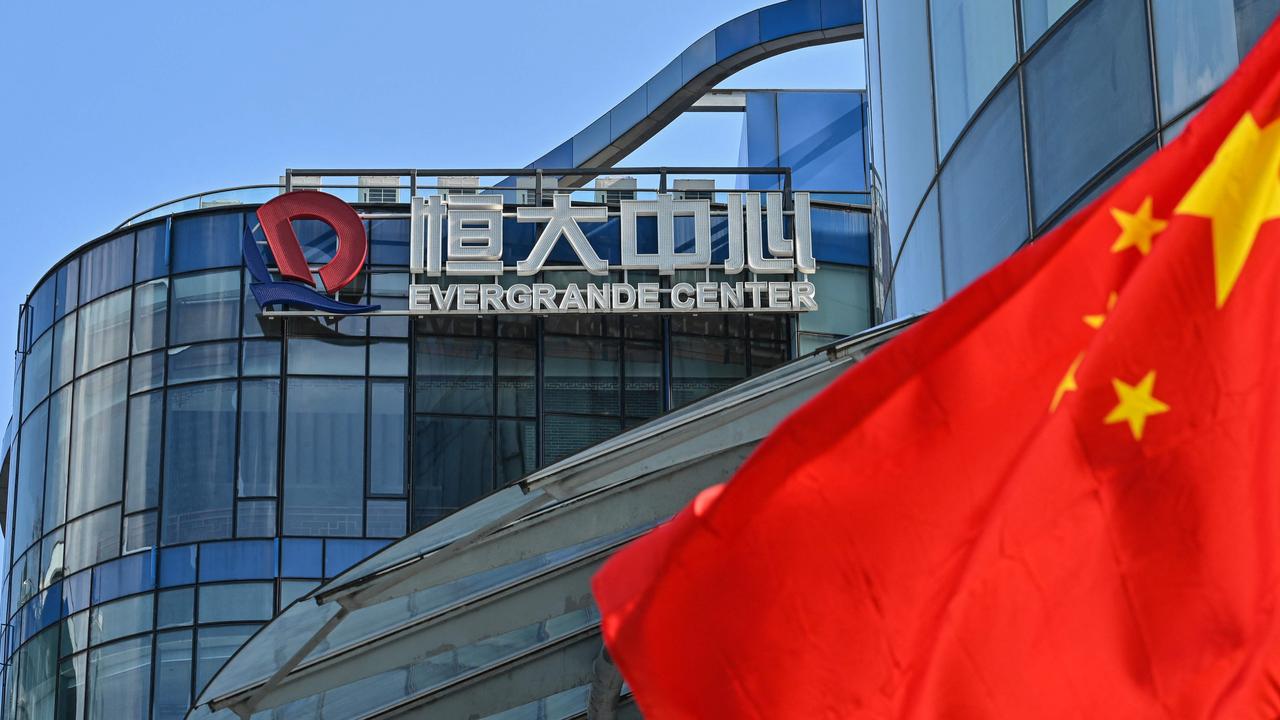
Share price crashes
It’s just the latest in a series of blows to hit Evergrande, with the firm’s share price plummeting by up to 14 per cent on Thursday after it began trading again after an almost three week trading halt.
That crash was caused by the failure of that $US2.6 billion planned sale and the company’s own admission it couldn’t guarantee it would be able to meet its repayments.
It sent not only Evergrande’s share price into free fall, but also sent shockwaves throughout Asian and European stock markets.
Justin Tang, of United First Partners, told AFP that “without the infusion of cash from the sale” of assets, the firm’s share price “is going to take the elevator down”.
“Any hope that the company would find the funds to make an offshore coupon payment by the end of the grace period this weekend is surely now gone which could trigger a default unless the terms are renegotiated,” market analyst Craig Erlam at currency trading platform Oanda also told the service.
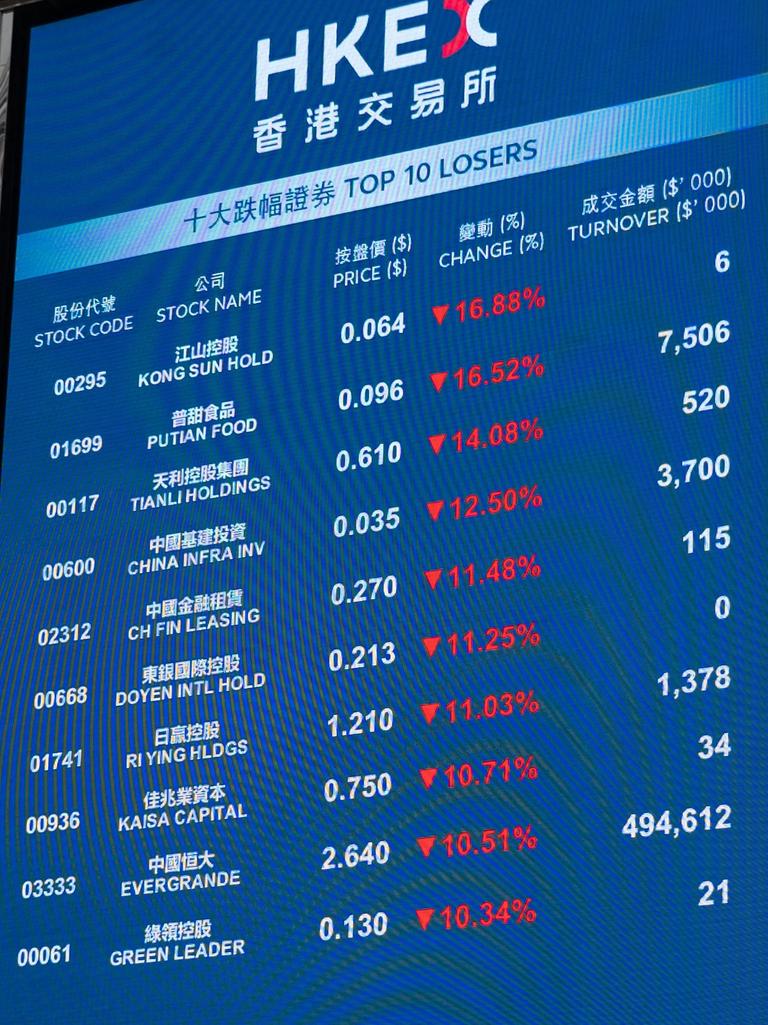

Failed deal
Earlier this week, news broke that the planned sale of a 50.1 per cent stake in Evergrande’s property services division to Hopson Development Holdings had collapsed, adding another nail to Evergrande’s coffin.
In a filing on Wednesday, Evergrande said it was not convinced Hopson had met the “prerequisite to make a general offer”, but failed to disclose more details.
But Reuters reported the deal fell through as it did not gain the approval of the Guangdong provincial government, which is overseeing Evergrande’s restructuring.
Other sources told Reuters some of Evergrande’s global creditors were also against the lucrative deal.
Chairman’s desperate move
Meanwhile, an anonymous insider also told Reuters Evergrande’s billionaire chairman Hui Ka Yan was going to extreme lengths to keep the company afloat, even vowing to inject his own cash into a project connected with the almost-overdue bond.
Reuters reported that the plan was accepted by bondholders, but it is not yet known whether it will be enough to avoid a collapse.
Contagion fears grow
The latest Evergrande developments come amid growing concerns a contagion is in full swing, with many Chinese real estate firms struggling to repay their own debts.
Sinic Holdings Group Co failed to make interest and principal payments on a $US250 million ($A334 million) note due earlier this week, and earlier in October Fantasia Holdings Group Co also defaulted.
Modern Land China Co also suspended trading in Hong Kong on Thursday after earlier requesting a payment extension.
Xi’s dangerous game
Australian Strategic Policy Institute (ASPI) strategy and national security program director Michael Shoebridge told news.com.au the growing crisis surrounding Evergrande and the broader Chinese real estate sector had “turned what was a difficult issue for the Chinese state with part of the economy into an emerging issue for social stability”.
In fact, he said it could even threaten President Xi Jinping’s hold over the nation.
“That is a core issue for maintenance of Party rule and to the respect and support that China’s citizens have for Xi Jinping," he said.
“It’s become apparent that important Party members and their families are being affected by the unfolding financial damage from Evergrande and other distressed property development companies.
“This is being added to by further anxieties for property investors and homeowners from the proposed increased property taxes that Xi has been floating at the same time.”
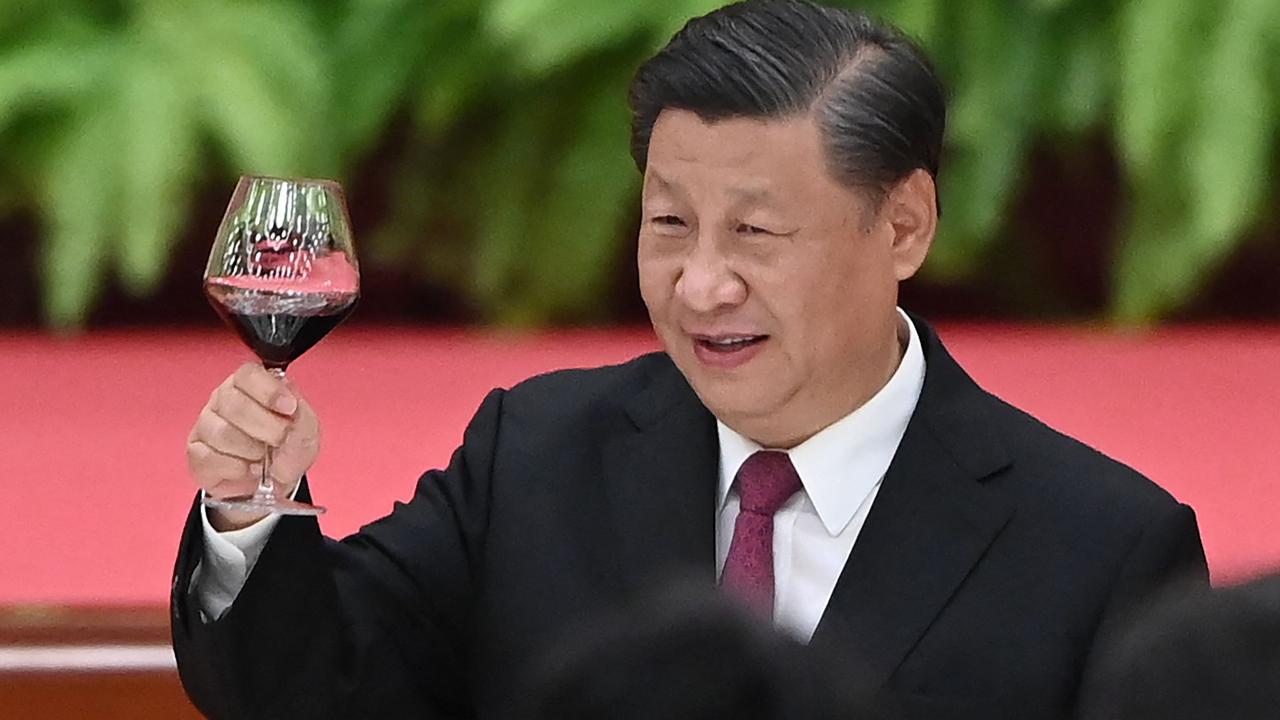
Mr Shoebridge said it was becoming apparent that China was failing to contain the disaster.
“For all the talk of the elegance and orchestration of China’s one-man centred authoritarian model of government, the situation is illustrating the limitations of this closed decision making model,” he said.
“It simply doesn’t look like the Chinese authorities have a plan to manage the unfolding effects from Evergrande – it’s more like they wish it wasn’t happening, they’d like to direct private investors to save the situation but this isn’t working, and they now fear the social and political effects. That’s where their effort will now go.
“Xi and senior Party and government officials seem to be encountering unexpected ripple effects and consequences from big decisions they are taking and are now caught in rolling management of these compounding problems, with plenty of surprises along the way.”



